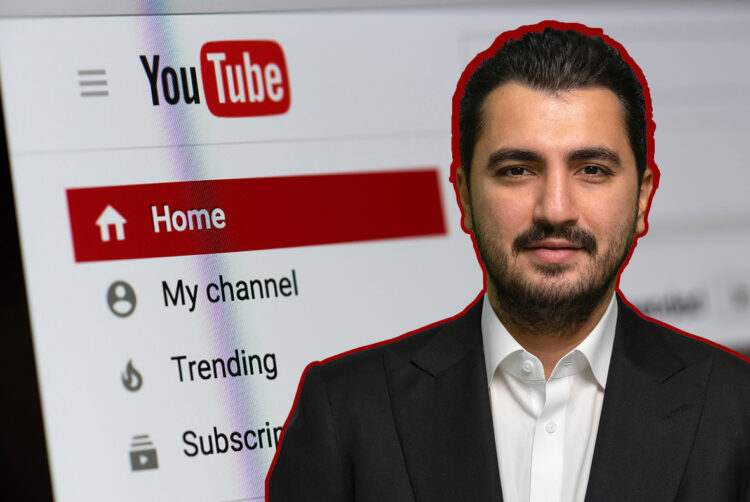Merzigo promises better YouTube monetisation for content owners

The Media Leader Interview
Major studios, production companies and other content owners are being urged to think of YouTube as another distribution partner and harness the kind of engagement skills mastered by influencers to multiply revenues there.
Yiğit Doğan Çelik, CEO of Merzigo, says his company can help traditional media owners generate two to three times the revenue on YouTube that in-house teams can when publishing premium content on the platform.
Merzigo does this with an end-to-end service that combines metadata expertise, channel management, business analytics and more.
Çelik believes traditional media owners can use YouTube, as well as Meta, to monetise archive content that doesn’t fit into owned-and-operated streaming services.
“Major streaming services must focus on new content to drive customer acquisition, but we can help content owners generate audiences for their archives,” he explains.
“Media owners have thousands of hours of archive content that is not being commercialised on their own platforms. We can establish a YouTube channel using their brand guidelines, make their content visible on the platform and help commercialise it.”
For Çelik, a YouTube channel can also be used as another distribution window for new content, providing a home after it has been monetised in linear broadcast TV, catch-up services and streaming portals.
He agrees with YouTube’s assertion this year that it is a platform for premium TV, stating: “2025 is the kick off year for YouTube in the premium video sector.”
Merzigo claims to be the largest distributor of premium video on YouTube and Meta. The company’s clients include Disney, Fremantle, Warner Bros Discovery, RTVE, Sony Pictures, Viacom18 and Zee.
Fremantle expands collaboration
Fremantle, the global production company that lists Neighbours and the Got Talent and Idols franchises among its hits, has just expanded its collaboration with Merzigo for “social AVOD”.
Merzigo is now publishing and managing long-form scripted and unscripted content on its behalf.
Under an existing partnership, Merzigo licensed a selection of entertainment titles from Fremantle and published them in its own channels on YouTube and Meta. Now, Merzigo is publishing an expanded content offer into Fremantle-owned channels on these platforms instead, targeting Turkey, Northern Cyprus and MENA.
Fremantle views this as an opportunity to introduce new audiences to some of its most-loved shows — globally as well as regionally.
Çelik believes even large media companies benefit from using a partner like Merzigo for this kind of distribution. This is partly because of the physical effort and human resource needed to address a potentially global audience.
“You have to scale on this platform if you want to commercialise your content,” he declares.
There are other skills that are hard to replicate or resource, such as content optimisation, which requires an understanding of which parts of a video are watched and which actors or actresses gain more traction, for instance.
Merzigo monitors which keywords work best when drawing people to content — something that includes tracking comments and even blogs.
“These channels are living and breathing things,” Çelik observes. “We have dedicated metadata specialists and business analysts, and 600 people employed. Most media companies cannot bring the resource needed.”
Localisation is a key challenge because, although these platforms are global, markets must be treated separately to maximise penetration. This includes language. Currently, Merzigo can work in 30-plus languages.
Merzigo operates its own technology platform (called Merzigo Mastery Platform) that includes reach and monetisation optimisation tools. It also covers multi-format editing, community engagement, dubbing and subtitling, content protection and data-driven insights, among other things. The company takes responsibility for full channel management.
Çelik says Merzigo currently manages 5,000 digital channels and uploads 6,000 videos a day, spanning clips and compilations to classic long form. In total, it manages 400,000 hours of content.
Minimum revenue guarantee for publishers
Merzigo works on a revenue-share basis. After YouTube or Meta has taken its share of ad revenue, the company takes a share of the remainder. It offers each client a minimum revenue guarantee, having first assessed the channel before making its offer. Media owners pay nothing unless revenue is generated.
It operates under content and brand guidelines set by the media owner. On YouTube, ads are served and selected by YouTube. Merzigo says media owners retain a level of control over what ads are shown, including via advertiser blocklists (eg. to prevent competitor ads). “YouTube automatically blocks illegal or policy-violating ads,” according to Merzigo.
Çelik points out that many traditional media companies already use YouTube as a paid performance marketing tool to help build audiences or drive subscriptions at owned-and-operated properties. He believes more of them should publish there to engage audiences beyond owned-and-operated.
“They have lots of content that is suitable. They can become part of the creator economy,” he says.
And YouTube, Çelik suggests, is now being viewed differently: “Responsibility for YouTube was with the marketing team. Some [TV] companies are now establishing YouTube divisions or shifting this function to the distribution department.
“They should think of YouTube as their own OTT service, somewhere where they take all the decisions on content. That is how we position this to potential customers.”




